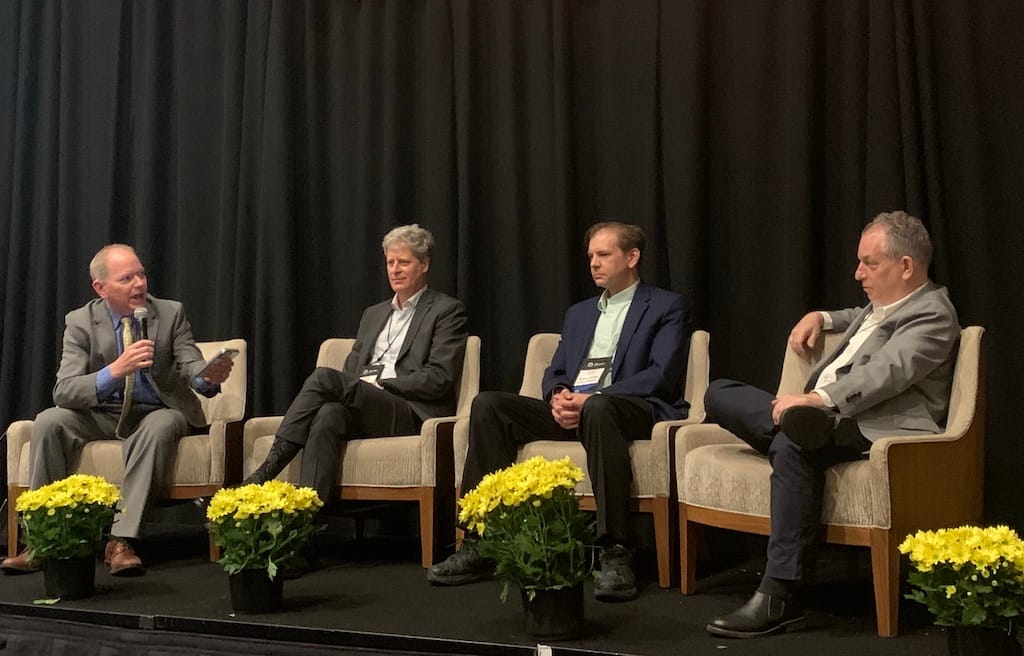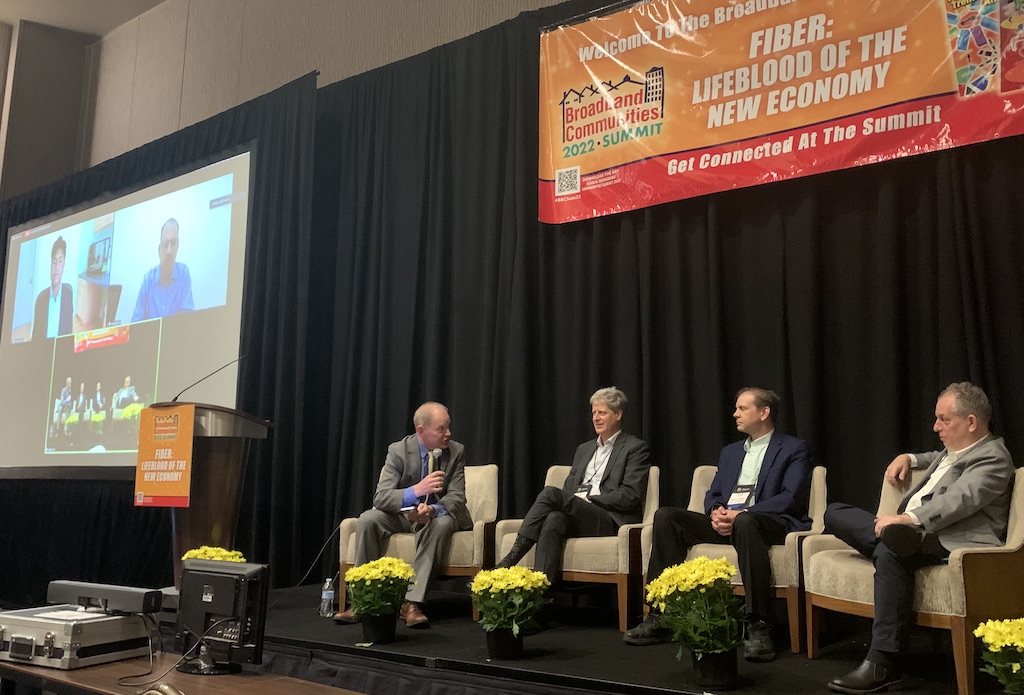Tech-Backed Infrastructure Firm Says Private Financing Needed for Shared 5G Facilities
Sidewalk Infrastructure Partners representative says investors must step in as large carriers are burdened by high costs of 5G rollout.
Riley Haight

HOUSTON, May 3, 2022 – A representative of an infrastructure firm affiliated with Google’s parent company Alphabet on Monday emphasized the need for private financing in funding open access networks for 5G expansion.
Noah Tulsky, partner at Sidewalk Infrastructure Partners, participated in a panel on private financing of broadband infrastructure projects as part of Broadband Breakfast’s Digital Infrastructure Investment during the Broadband Communities annual summit here.
Sidewalk Infrastructure Partners is an independent company. Alphabet is one of many investors in SIP, alongside Ontario Teachers’ Pension Plan and StepStone Group.

Photo of Shrihari Pandit and David Barron (on Zoom), and, Drew Clark, Andrew Semenak, Darrell Gentry, Joe Plotkin
Tulsky stated that at the present, private investment into shared broadband infrastructure networks is particularly necessary in large part because it is capital intensive for large cellular carriers to expand their rollout of 5G networks.
The market climate of the moment makes it difficult to charge cellular customers higher data rates for 5G implementation as consumers are largely unwilling to pay such fees.
Broadband Breakfast’s event also focused heavily on ideal strategies for fiber builds with additional input from advisory firm Pinpoint Capital Advisors’ managing director Andrew Semenak, internet service provider Next Level Networks’ CEO David Barron and Chief Technology Officer Darrell Gentry, and ISP Stealth Communications’ CEO Shrihari Pandit as well as its Business Development Director Joe Plotkin.
Pandit summed up the central question on discussion, stating “Will throwing more money at broadband help to solve key issues like closing the digital divide and making broadband access more affordable for millions?”

Tulsky has written previously in Broadband Breakfast on the symbiotic relationship fiber has with wireless, stating that “wireless broadband can complement fiber technology, which drive down consumer costs and help close the digital divide.”
He stated Monday that funding from Congress’ bipartisan infrastructure bill is likely the best way to build conduit and predicted that in less wealthy, low-density areas conduit will be funded by the government as opposed to private investors, while small and medium fiber companies will be consolidated into larger companies that focus on city-based fiber deployments.
Information about the presentations made during the “Private Financing” panel are available at the Digital Infrastructure Investment page.
T.J. York contributed reporting to this article.









Member discussion